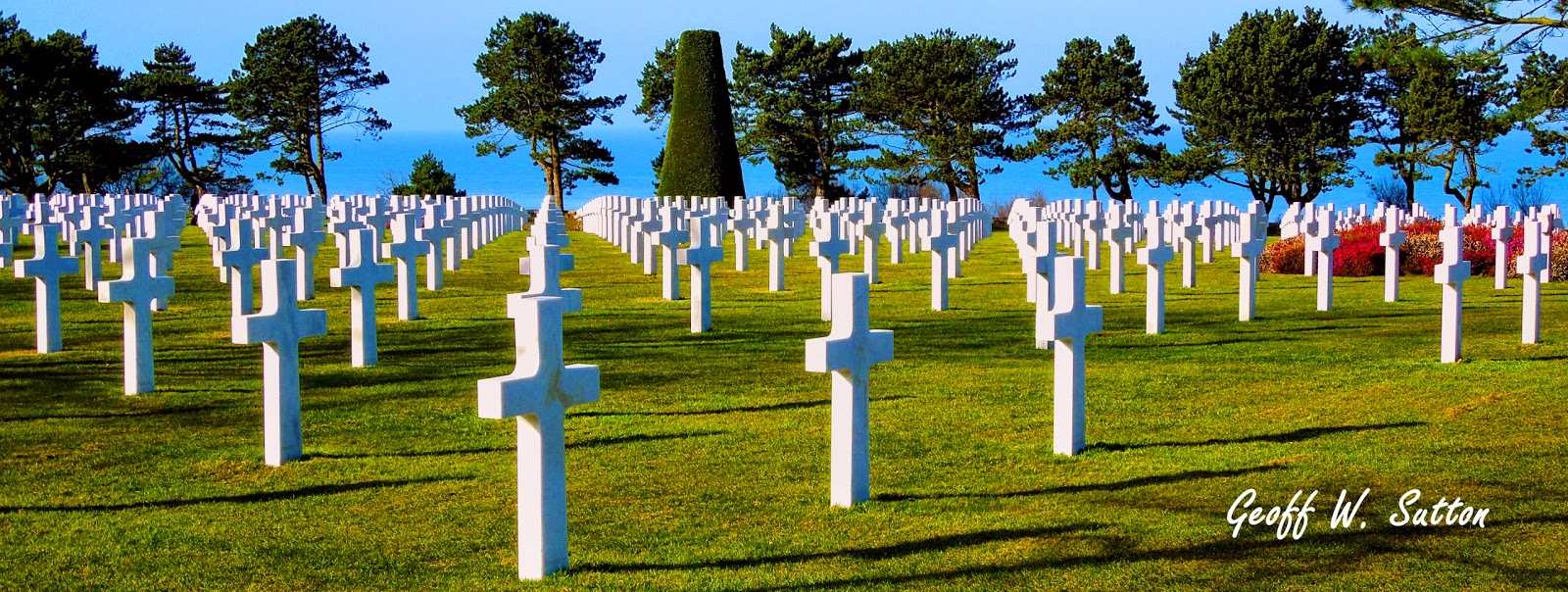Armistice Day/ Veterans Day, & Spirituality
8 March, 2012, Normandy France, Geoff W. Sutton
A century ago, 1914, The Great
War was underway. Two years later, on 21 February 1916 the Battle of Verdun
began. Using the code name, Judgment, the Germans attacked the French at Verdun
in an effort to “bleed France white” (von Falkenhayn).
The graphic descriptions left by the soldiers remind readers of the horrors of
war. The numbers of dead soldiers at one battle is mind-numbing—133,000 French
and 120,000 Germans. War is a spiritual experience of the worst kind. War is hell.
On the fields of Belgium and
France, soldiers noticed signs of life. Men remembered birds in the sky. Close to
the release of German gas, a woman gave birth (April 22, 1915). And despite the
devastation, others appreciated the flowers in the Spring.
In 1915, a Canadian soldier, John McCrae, penned the famous lines:
In 1915, a Canadian soldier, John McCrae, penned the famous lines:
In Flanders fields the poppies
blow
Between the crosses, row on row,
That mark our place; and in the
sky
The larks, still bravely singing,
fly
We are the Dead. Short days ago
We lived, felt dawn, saw sunset
glow,
Loved and were loved, and now we
lie
In Flanders fields.
Wake up our quarrel with the foe:
To you from failing hands we
throw
The torch; be yours to hold it
high.
If ye break faith with us who die
We shall not sleep, though
poppies grow
In Flanders fields.
After returning to the U.S., she began volunteer work for the YMCA. At a YMCA conference in New York, two days before the armistice of 11/11/1918, she had a spiritual experience as she connected with McCrae's poem. She began wearing a poppy at the conference, which inspired others to do the same. She campaigned to have the poppy recognized as an official remembrance of what the soldiers had sacrificed. Her ideas were carried to France by Madame Anna E. Guérin. In the years to follow, several Western countries followed the practice. The poppy not only represented a remembrance of those who gave their lives, but it also served as a reminder of those survivors who were disabled and those civilians harmed by the effects of war. (Link to more on the story.)
In war, ordinary people carry out
the decisions of political leaders. The writings of soldiers in the line of duty reflect how hard
it is to make sense of daily existence regardless of the sacred cause. For soldiers in the trenches and on the barren plains of war, the basics acts of life—eating and drinking—take
place among the dead. The plea to keeping faith with our warriors is answered
every year when people take time to honor those who died for us.
Spiritual experiences are of course quite personal, but a few lines of a poem
and a small poppy flower illustrate the power of symbols to affect the emotions of
millions of people in many nations. Even hardened warriors can be moved to tears as they remember fallen friends. Only life makes sense of death.
Symbols make life and death meaningful
when they connect us to the lives of real people.
The death of veterans gives life to others.
Related Post
Related Publications



Comments
Post a Comment